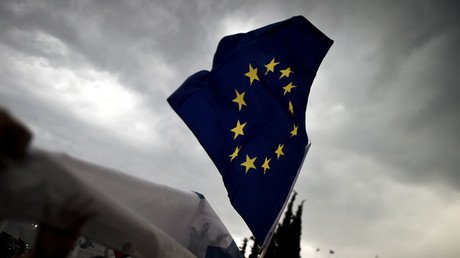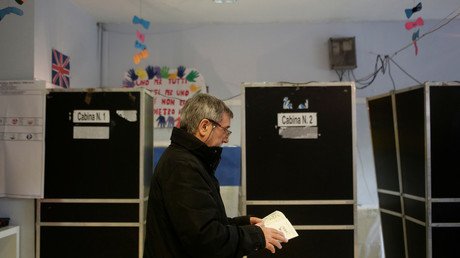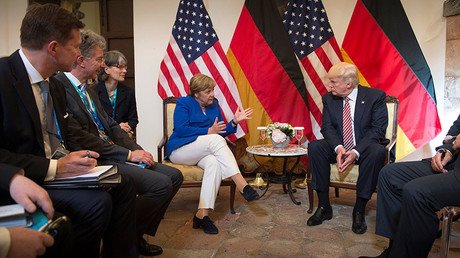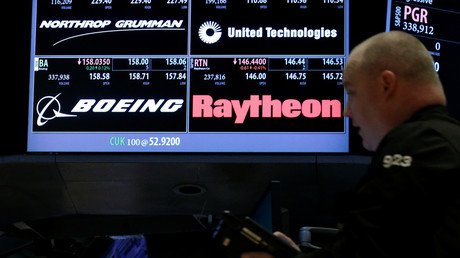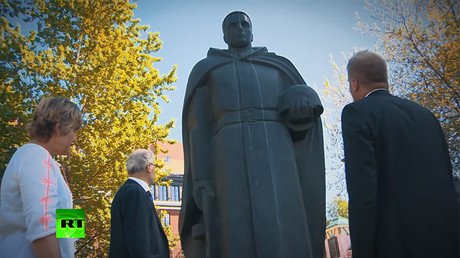United against Brussels? Italy's antagonist Euroskeptic left & right mull coalition govt
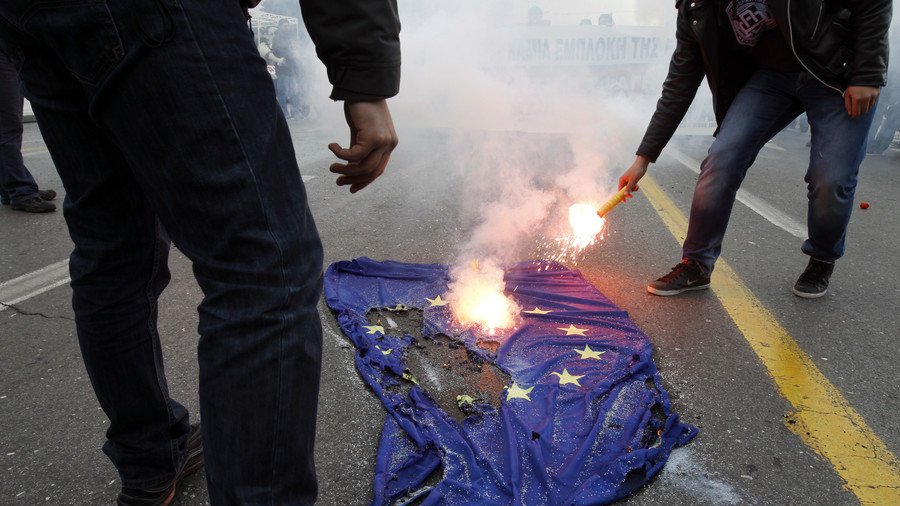
Italy's anti-establishment 5-Star Movement and the anti-immigrant Lega are reportedly close to forming a coalition government. Despite lying on opposite ends of the political spectrum, both parties share Euroskeptic views.
Italy's March 4 parliamentary elections resulted in a crushing defeat for ruling centrist Democratic Party, with Lega taking 37 percent of the vote, and 5-Star finishing not far behind with 32 percent. However, without a majority in parliament, both parties have struggled unsuccessfully to form a new government.
The political deadlock is so bad that President Sergio Mattarella recently signaled that he would nominate a political outsider to head a "neutral" government, and make preparations for new elections. However, Mattarella agreed to halt his plans on Wednesday after 5-Star and Lega said that negotiations about the formation of a coalition government were making progress – but that the two factions would need more time to iron out a deal.
"We still need to talk about programs, things to do, taxes, labor, pensions, immigration, schooling," Lega leader Matteo Salvini told reporters after meeting with 5-Star head Luigi Di Maio.
5-Star has repeatedly offered to form a government with their right-wing rivals, but only on the condition that the new coalition exclude former prime minister Silvio Berlusconi and his Forza Italia party – a Lega ally. Salvini had previously rejected the idea of abandoning his party's alliance with Berlusconi, but the former prime minister has apparently given Lega the green light to pursue a coalition government with 5-Star, saying that he wouldn't support the coalition in parliament, but would maintain ties with the party at a local level.
Before the March elections, Berlusconi branded 5-Star as a "sect" whose politicians are "worse than Communists". But apparently even Berlusconi's open disdain for 5-Star has not prevented Italy's far-right and far-left from joining forces. Together, the two parties already form a Euroskeptic majority in parliament.
What unites Lega and 5-Star?
Despite any differing views, the two parties unite when it comes to Euroskeptic policies. One of their major points of contention with the EU is what they view as budget limitations imposed by Brussels.
Both believe that austerity has damaged Italy, and that economic expansion through additional spending and tax cuts is the only way to restore growth. A deal between the two parties would likely see a disregard for the EU's calls for budgetary corrections, as Lega's leader Matteo Salvini has already said he would implement policies that are the "opposite" of what Brussels wants.
Both parties are critical of Italy's use of the euro, with Lega being the most outspoken critic of the bloc-wide currency. Its leader, Matteo Salvini, has repeatedly called the euro a failed currency that is bound to collapse and only benefits Germany. The Five Star Movement has called for a referendum on euro membership, with the party's founder recently stating that goal. However, the party's political leader, Luigi Di Maio, says such a move would only be a "last resort" if the EU doesn't change its economic policies.
The two parties have also been extremely critical towards new EU banking rules, specifically "bail-in" requirements that force holders of banks' junior debt to take losses. They also believe that nationalization of weaker banks would be a desirable alternative to recapitalizations or resolutions under EU rules.
When it comes to trade, the two parties are equally discontent with current EU policies. Among their desired changes would be to restore protections and subsidies for Italian farmers. They also believe that the current government has been too welcoming of foreign investment, pushing Italian companies into a vulnerable position.
Lega also takes a stricter view towards immigration than the EU, particularly as Italy is a stopping point for boats arriving across the Mediterranean from North Africa. The party has vowed to deport more than 500,000 migrants who have arrived to the country over the past four years. Although 5-Star has been less vocal on the matter, it too leans to the right when it comes to immigration.
The two are also more likely to seek stronger ties with Moscow, rather than the EU and the US, when it comes to major international issues. Both parties have also been skeptical of Italy's NATO membership.
A coalition between 5-Star and Lega could in many ways mirror Austria's current Euroskeptic government, which has defied Brussels with its anti-immigrant stance – and refusal to burn bridges with Moscow.
Salvini, who would likely play a leading role in the proposed coalition, may help to bring similar policies to Rome. In an interview, the Lega leader said that Russia, in terms of culture, "has much more in common with Europe than does a country like Turkey," adding: "It's not like Putin calls me every night, but it strikes me as counter-productive to fight with a neighbor like Russia."
Think your friends would be interested? Share this story!
